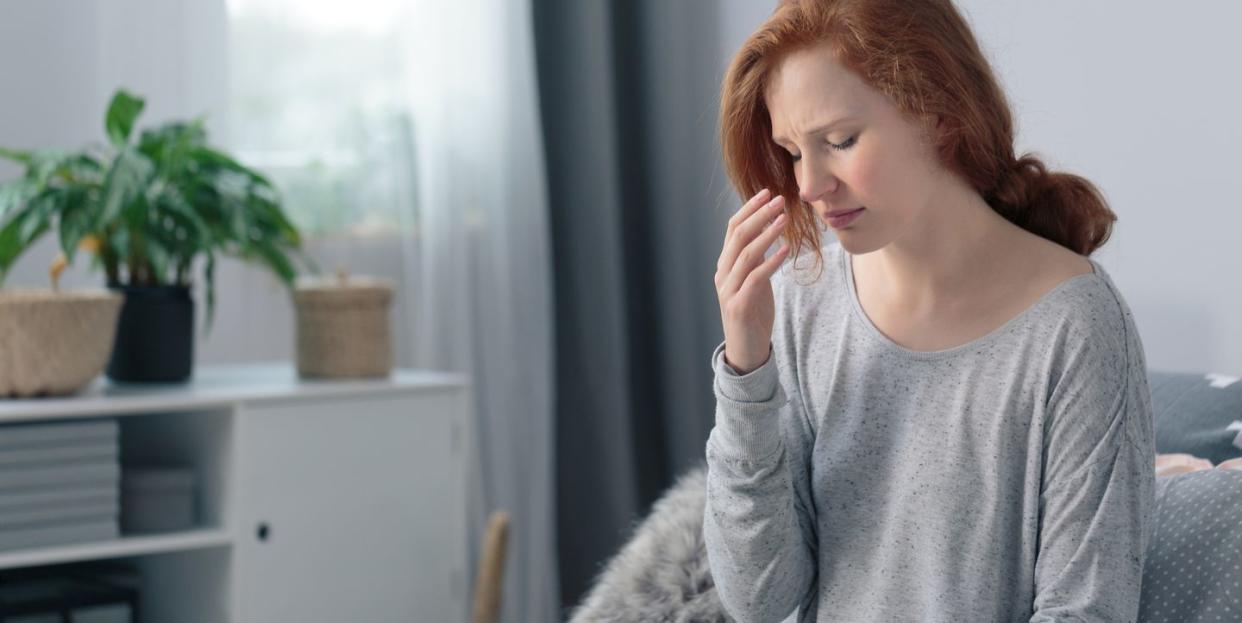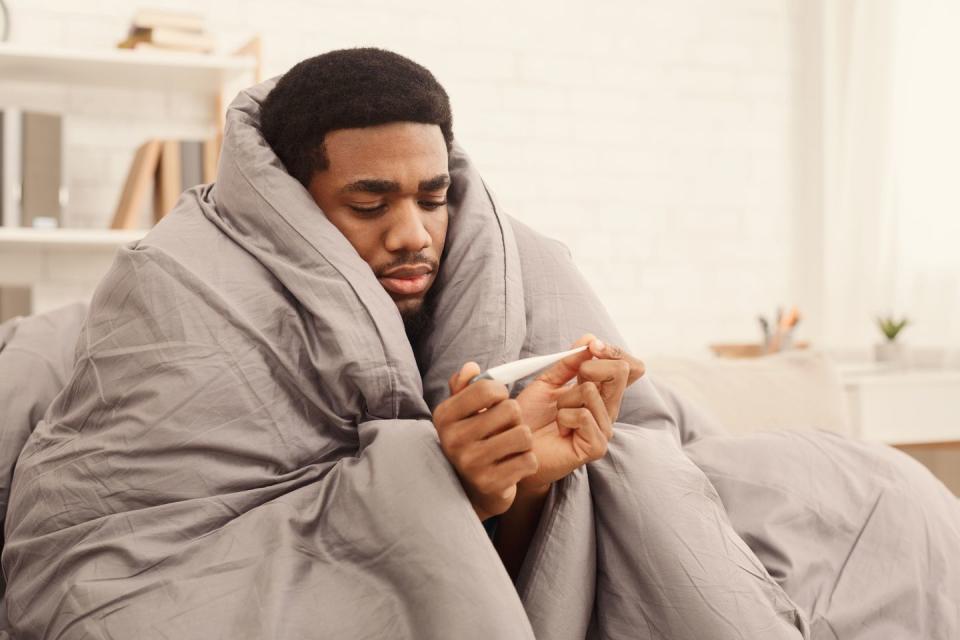Here's what to do if you have a high temperature

If you have a hot forehead, chills or aching muscles, you might have a high temperature or fever. This happens when your body is battling a disease or illness. Think of it as your body’s early warning signal.
It is normal for your body’s temperature to fluctuate throughout the day. However, the following guidelines apply:
Adults: if your temperature is above 100.4°F (37.8°C), you have a fever.
Children: a child is said to have a fever if their temperature is above 99.5°F (37.5°C).
Physical activity, anger, eating, heavy clothing, some medication, a high room temperature and high humidity can all also increase body temperature.
High temperature symptoms
Other common symptoms of a fever include:
Sweat
Warm forehead
Headache
Shiver (chills)
Aching muscles
Rash
Feeling weak
Loss of appetite
High temperature causes
While it is possible to have a high temperature without a known cause, the main cause is infection and almost any infection can cause a fever.
Examples of conditions causing a temperature include:
Chest infections and pneumonia
Appendicitis
Skin infections
Tonsillitis and ear infections
Children may also have a low-grade fever after some immunisations or when they are teething.
Many inflammatory disorders may also cause a raised temperature, such as rheumatoid arthritis, inflammatory bowel disease (ulcerative colitis and Crohn's disease) and also some cancers, such as lymphomas and leukaemia.

High temperature treatment
If you have a high temperature, try the following treatments:
✔️ Stay hydrated
If a fever is due to a simple cold or viral infection, this does not usually mean there is a serious problem – if the raised temperature is mild and there are no other problems then no specific treatment is required apart from drinking lots of fluids and resting. It is very important that children or adults do not get dehydrated with a fever so drinking water is key.
✔️ Avoid cold baths or ice
If someone has a fever make sure their bedding and clothing is not contributing but do not be tempted to use cold baths or ice – these can cool the skin temporarily, but often make the situation worse by causing shivering, which raises the core body temperature.
✔️ Take over-the-counter medicines
In adults, paracetamol and ibuprofen can be very effective for treating a raised temperature, with aspirin as an alternative to ibuprofen.
In children, paracetamol and ibuprofen at the recommended doses for age and weight can help to reduce fever. The NHS guidelines recommend using either paracetamol or ibuprofen products, not continuously giving both in succession.
If the first agent does not work in a simple viral illness then the alternative can be tried but it is important to discuss with your doctor if things are not improving or you have any concerns. In children under three months, call your doctor first before giving any medicines to lower a temperature.
❗ If you have concerns about someone with a high temperature then contact a health professional for advice.
Last updated: 18-03-2020
You Might Also Like

